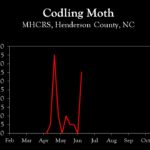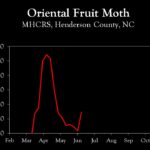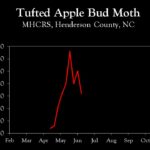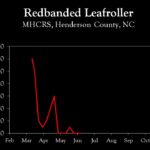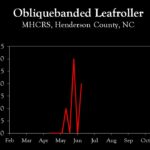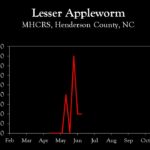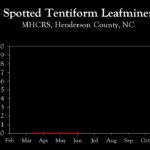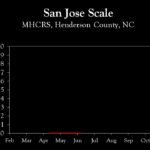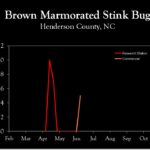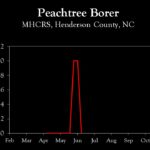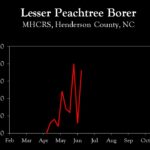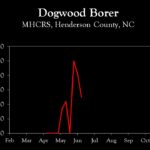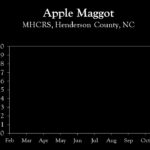WNC Orchard Insect Pest Populations – June 12, 2024
go.ncsu.edu/readext?1008478
en Español / em Português
El inglés es el idioma de control de esta página. En la medida en que haya algún conflicto entre la traducción al inglés y la traducción, el inglés prevalece.
Al hacer clic en el enlace de traducción se activa un servicio de traducción gratuito para convertir la página al español. Al igual que con cualquier traducción por Internet, la conversión no es sensible al contexto y puede que no traduzca el texto en su significado original. NC State Extension no garantiza la exactitud del texto traducido. Por favor, tenga en cuenta que algunas aplicaciones y/o servicios pueden no funcionar como se espera cuando se traducen.
Português
Inglês é o idioma de controle desta página. Na medida que haja algum conflito entre o texto original em Inglês e a tradução, o Inglês prevalece.
Ao clicar no link de tradução, um serviço gratuito de tradução será ativado para converter a página para o Português. Como em qualquer tradução pela internet, a conversão não é sensivel ao contexto e pode não ocorrer a tradução para o significado orginal. O serviço de Extensão da Carolina do Norte (NC State Extension) não garante a exatidão do texto traduzido. Por favor, observe que algumas funções ou serviços podem não funcionar como esperado após a tradução.
English
English is the controlling language of this page. To the extent there is any conflict between the English text and the translation, English controls.
Clicking on the translation link activates a free translation service to convert the page to Spanish. As with any Internet translation, the conversion is not context-sensitive and may not translate the text to its original meaning. NC State Extension does not guarantee the accuracy of the translated text. Please note that some applications and/or services may not function as expected when translated.
Collapse ▲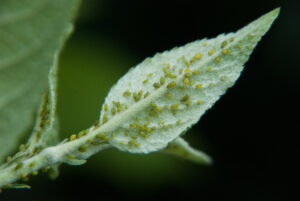 Based on degree-day accumulations (850 in Henderson and 1130 in Cleveland Counties), first generation codling moth egg hatch is essentially complete. However, some orchards, particularly at higher elevations, may have late-emerging or large codling moth populations that require continued insecticide treatments. Pheromone trap captures are the best method for gauging the need for additional insecticides during this period. Although many factors can affect pheromone trap captures, between 5 and 10 moths over a one week period can serve as a conservative threshold level.
Based on degree-day accumulations (850 in Henderson and 1130 in Cleveland Counties), first generation codling moth egg hatch is essentially complete. However, some orchards, particularly at higher elevations, may have late-emerging or large codling moth populations that require continued insecticide treatments. Pheromone trap captures are the best method for gauging the need for additional insecticides during this period. Although many factors can affect pheromone trap captures, between 5 and 10 moths over a one week period can serve as a conservative threshold level.
As mentioned last week we have entered that period when several indirect pests are the major drivers of pest management decisions for the next few weeks. European red mite, apple aphids and potato leafhopper, all of which may or may not develop to damaging levels, should be the focus of monitoring programs at this time. To date aphids and leafhoppers have been below damaging levels in most orchards. Where present, mites populations could increase rapidly with the warm and dry conditions predicted in the near future. Applying miticides based on a threshold level of between 5 and 10 mites per leaf at this time will prevent populations from reaching damaging levels.
Learn more about southeastern apple insect pests at the Apple Insect Management page.
2024 Average Weekly Trap Captures
| HENDERSON COUNTY | |||
| Insects per trap | |||
| May 28 | Jun 3 | Jun 10 | |
| Codling moth | 0.5 | 0.0 | 3.5 |
| Oriental fruit moth | 9.0 | 3.5 | 29.0 |
| Tufted apple bud moth | 20.0 | 25.0 | 16.0 |
| Redbanded leafroller | 0.0 | 0.0 | 0.0 |
| Obliquebanded leafroller | 3.0 | 0.0 | 2.0 |
| Lesser appleworm | 8.0 | 2.0 | 2.0 |
| Apple maggot (abandoned and research orchards) | – | – | 0.0 |
| Brown marmorated stink bug (commercial) | – | – | 0.5 |
| Brown marmorated stink bug (unsprayed) | 0.0 | 0.0 | 0.0 |
| Spotted tentiform leafminer | 0.0 | 0.0 | 0.0 |
| Dogwood borer | 50.0 | 41.0 | 25.0 |
| Peachtree borer | 1.0 | 1.0 | 0.0 |
| Lesser peachtree borer | 20.0 | 3.0 | 18.0 |
| San Jose scale | 0.0 | 0.0 | 0.0 |
*Note that these averages illustrate only the timing of insect emergence and fluctuations in populations, and are not representative of population levels in any given orchard. The only way to have an accurate assessment of an individual orchard’s populations is to set up traps in that orchard.
2024 Accumulated Degree Days
| HENDERSON COUNTY | ||||
| May 28 | Jun 3 | Jun 10 | ||
| Codling moth (Biofix: April 15) | 602 | 679 | 814 | |
| Oriental fruit moth (Biofix: March 15) | 1096 | 1202 | 1372 | |
| Tufted apple bud moth (Biofix: April 15) | 802 | 908 | 1078 | |



